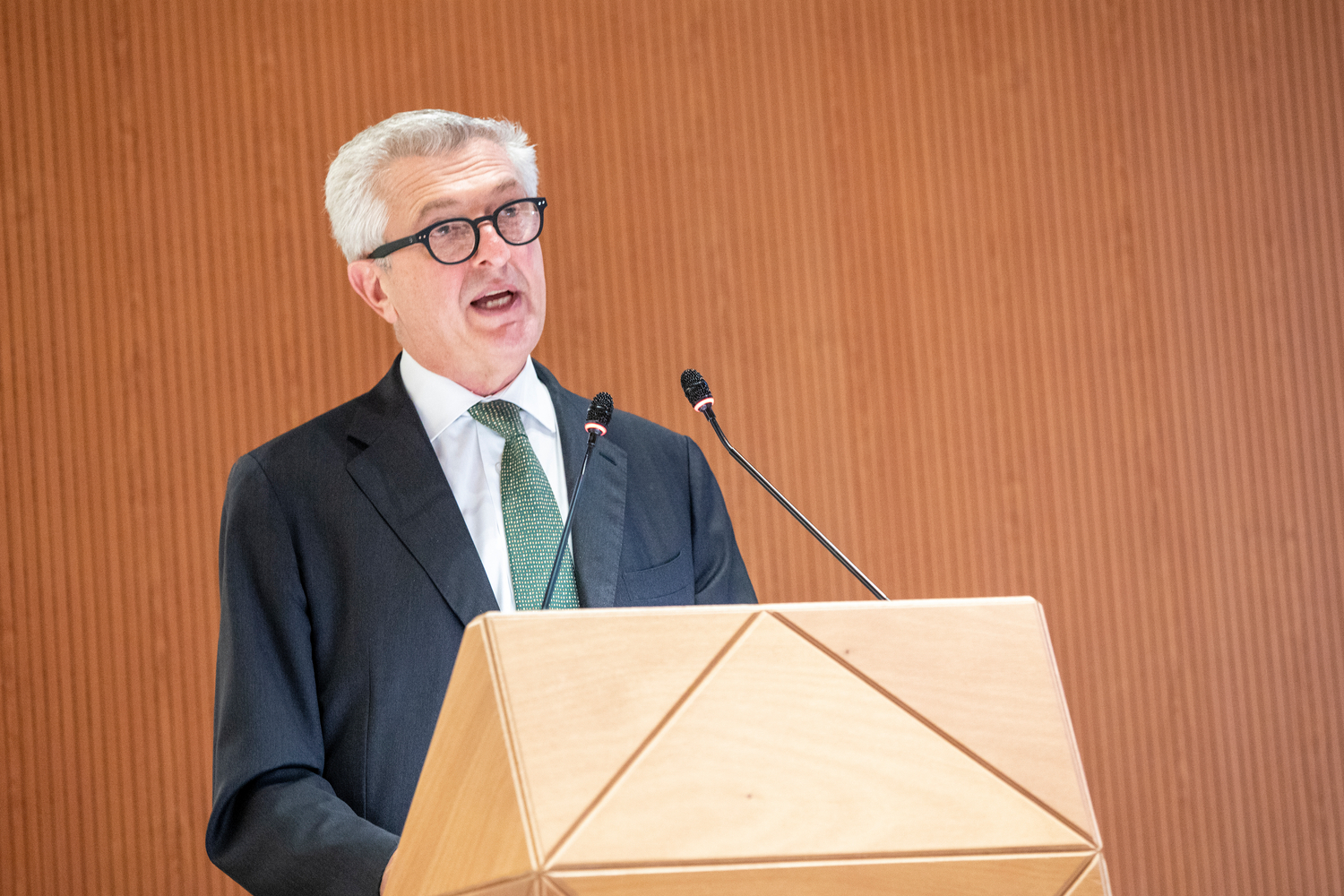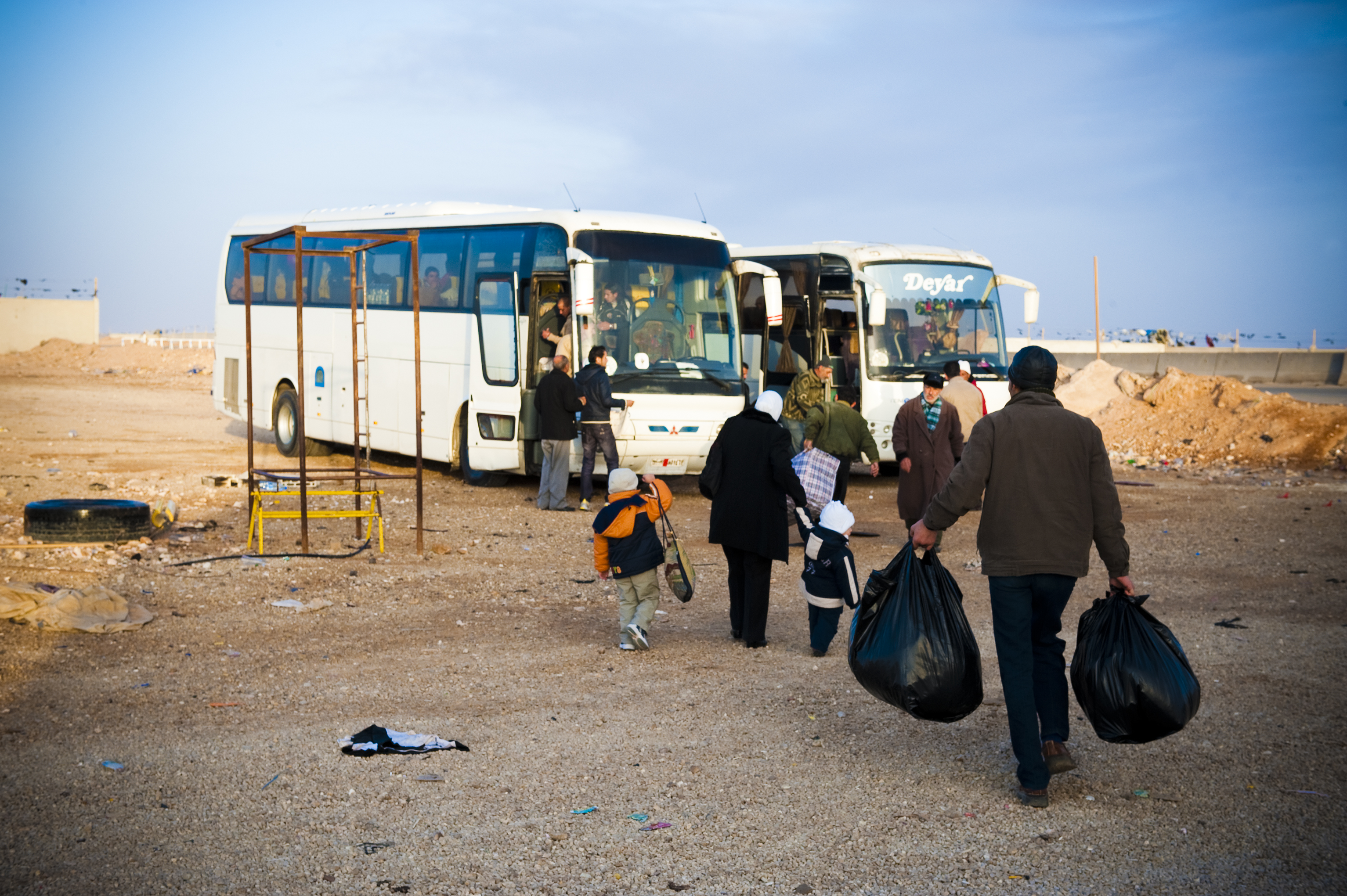UNHCR deeply concerned by plight of Palestinian refugees in Iraq, region
UNHCR deeply concerned by plight of Palestinian refugees in Iraq, region
UNHCR is deeply concerned over the well-being of Palestinian refugees inside Iraq, as well as those who fled targeted harassment and violence in Baghdad and are now stuck at the border between Iraq and Syria and in camps in Jordan and Syria.
The security situation of Palestinian refugees in Iraq has deteriorated - particularly since the Samarra bombings last February - and an increasing number of them have left or are trying to leave the country. Palestinians in Iraq lack protection, have serious problems obtaining identity cards, and have been the target of continuing harassment, threats, kidnapping and killings. In late September, armed men in Baghdad hand-delivered written death threats to several Palestinians. Similar threats were issued earlier this year and created widespread panic among the Palestinians, many of whom tried to flee as a result.
Attempts by UNHCR to enlist the assistance of the Iraqi government and multinational forces to provide better protection for Palestinians have yielded modest results.
In 2003, UNHCR registered 23,000 of an estimated 34,000 Palestinians in Iraq. We believe about 20,000 of them remain in the country.
We are also very worried about the deplorable humanitarian conditions faced by some 330 Palestinians who tried to flee Iraq and have been stuck for more than four months at the Al-Tanf border crossing with Syria. Winter is coming and there is no solution in sight for these men, women and children. Upcoming rains could flood the tented areas where some 250 members of the group are staying. Another 75, who arrived later, are living in unacceptable conditions in a crowded building nearby.
Tensions at the border site are rising. The group feels insecure, citing reported regular visits from Iraqi security forces. Medical and sanitation facilities are inadequate. A premature baby recently died in the hospital, and the father of the child was not allowed to leave the border area to attend the funeral. Two weeks ago, a 14-year-old boy was hit and killed by a truck when he tried to ask for water. Tensions are rising, particularly as there is no sign of a solution. Despite efforts by UNHCR in Syria to gain entry for the Palestinians, the Syrian government has indicated they will not be admitted.
In Syria, meanwhile, the situation of more than 300 Palestinians who were admitted in May and who are now in El Hol refugee camp is also raising concerns. They had previously been stuck at the Iraq-Syrian border for about two months before gaining entry. They currently have only temporary status, limited freedom of movement, and no clear prospects as to their future. UNHCR is providing humanitarian care in cooperation with the Syrian authorities and UNRWA.
In neighbouring Jordan, 150 Palestinians in Ruwayshed camp - some since 2003 - will have to face another harsh winter in the scorpion-infested desert as all efforts to find solutions for them have been unsuccessful. Over the years, Jordan has provided refuge to many Palestinians, including after the 2003 fall of the Iraqi government when 386 Palestinians with Jordanian family connections were admitted. But in recent years, Jordan has denied entry to other Palestinians, emphasizing the need for other countries in the region to share the burden. Resettlement might be an option for about 50 Ruwayshed Palestinians, but this may take at least a year.
International support and goodwill are needed to find a solution for Palestinians from Iraq. UNHCR has tried several possibilities to no avail, including entry to Jordan; return to the Palestinian territories, with permission of Israel; relocation to other Arab states; and resettlement outside the region. At the same time, we continue to advocate for better protection of the Palestinian community inside Iraq.
Under the present circumstances, return to Iraq is no option unless security is restored.








